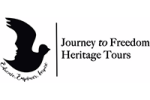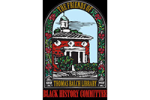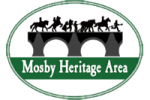- Loudoun Freedom Center -
Heritage. Healing. Hope.
Preserving Our Past, Inspiring Our Present, Empowering Our Future.
What We Do
Preserve & Protect
Identify and memorialize historic African American heritage sites, sacred burial grounds and communities throughout Loudoun County.
Tell the Story
Tell the comprehensive story of Loudoun’s shared history through community curated museums, interactive digital history maps, genealogy, archaeology and ancestry research.
Discovery & Geneology
Assist residents in discovering their genealogical past and ancestral history through the “I Am Loudoun Genome Project.”
Education & Workshops
Discover innovative STEM education and Historic Preservation camps, after school programs, workshops and seminars for adults and school age students.
- Projects -
Ashburn, VA
Burial Ground at Belmont
The former Lee owned Belmont Plantation is listed in the National Register of Historic Places without mention of the enslaved cemetery, that has been well documented since 1857. The former “Belmont Slave Cemetery” is one of the largest known Burial Grounds for the formally enslaved in Loudoun County. Spanning over 120 acres and 221 years. This centuries old, once abandoned heritage site, holds the key to unlocking the true history of the African American experience in Loudoun County.
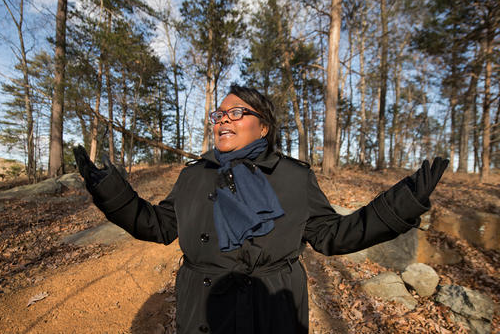
Waterford, VA
John Wesley Church
The John Wesley Methodist Episcopal Church served the African American community continuously for 77 years, from 1891 until 1968. For many years, members squeezed into the 1 room schoolhouse on Second Street for their services and other community gatherings. After the close of the Civil War in 1867, a consortium comprised of the Freedman’s Bureau, a black Educational Board, and local Quakers paid $75 for a lot on Second Street on which they built a one-room frame structure that served both as a school and a church.
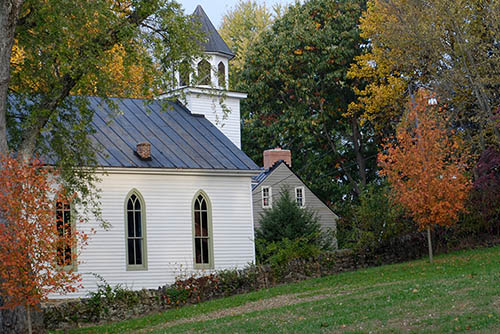
John Wesley M. E. church congregation, c. 1910
Dailey Cabin
Underground Railroad site
According to oral history in Eastern Loudoun, the Dailey historic log cabin was part of the Underground Railroad. The cabin is located in an area with key Underground Railroad features. A ridge runs along the back of the original parcel, and ridges were often used by runaway slaves because of the shelter they provided as well as a view of the surrounding area. For those escaping on foot, as most were, a river crossing was also critical in the northward journey.
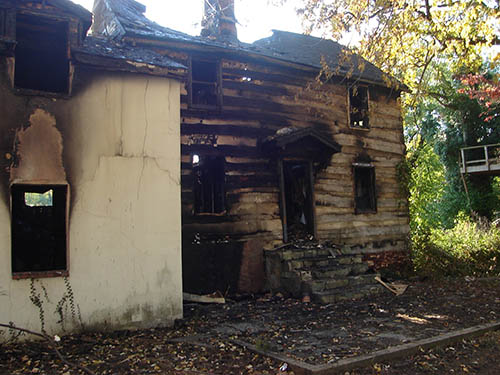
Living History
Leesburg Colored School
The historic two-story building on Union Street, with its chipped paint, slopping floors, and crumbling foundation houses the stories of close to 80 years of segregated education in Leesburg. It served as an educational hub for Loudoun County’s African American students from the early 1880s to 1958, first as the Leesburg Training School, Leesburg Colored School, and later as Douglass Elementary School. The Loudoun Freedom Center in partnership with the Douglass Alumni Association has begun the complicated process of aquiring the historic school building.
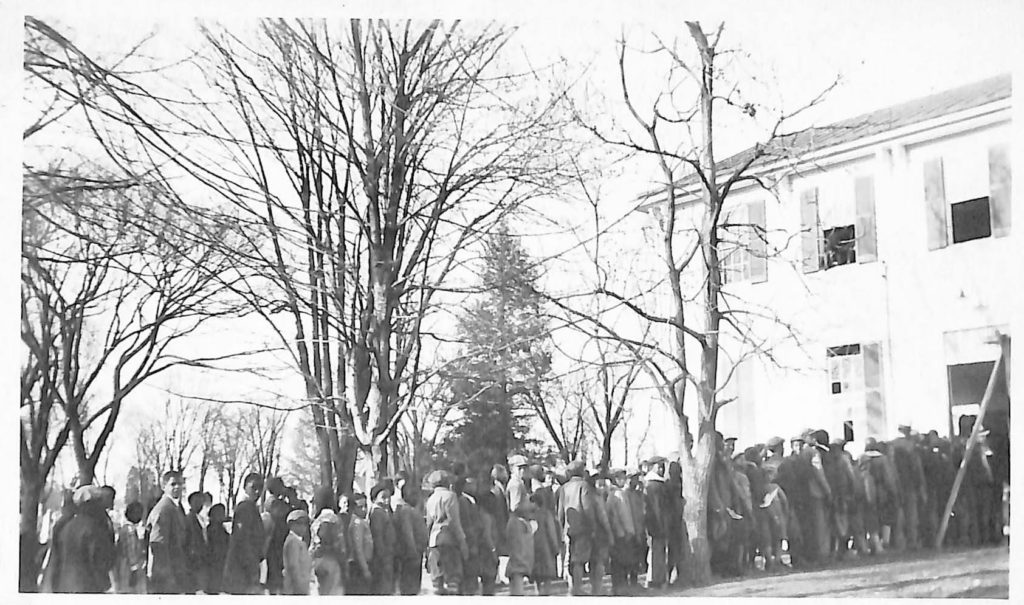
Rehabilitation
Union Street School
The long-term plan to restore the fondly remembered “Union Street School” includes retrofitting part of the property for a STEM preschool that focuses on (science, technology, education and math), and the vocation of aquaponic gardening, a program that teaches students how to grow their own food, elimating food insecurity. The Loudoun Freedom Center will also establish a DNA lab at the historic site, to process artifacts that may be found at Loudoun’s local enslaved cemeteries.
- A f f i l i a t e s / P a r t n e r s -

